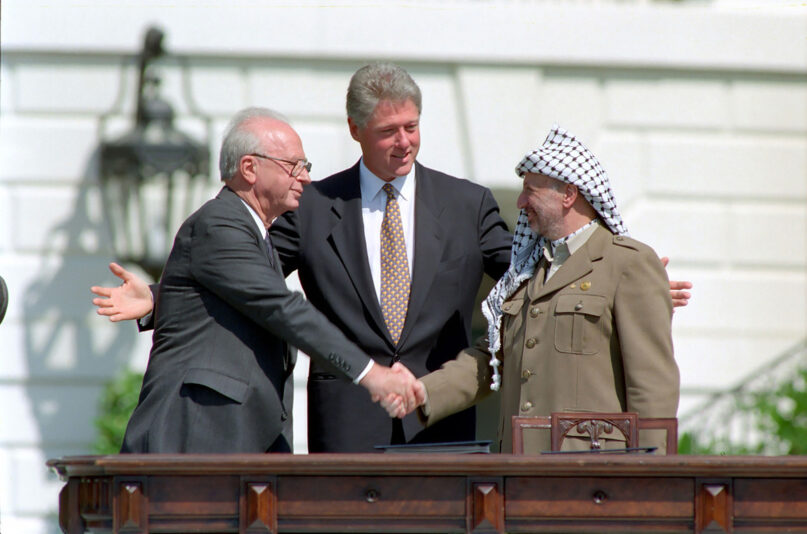(RNS) — For more than 70 years, peace between Palestinians and Israelis has eluded the most dedicated and experienced negotiators, and the conflict continues to claim victims on both sides. Therefore, before plunging into another attempt, the Biden administration would be well advised to take a step back and learn the lessons of this bleak history.
In this context, grand plans that focus exclusively on Palestinian perspectives, and downplay deeply embedded Israeli insecurity, including the growing Iranian threat, have no chance of success. And there is no value in presenting proposals that fail to consider the deep conflict between Hamas and Fatah, or the lack of a Palestinian leadership capable of reaching a historic compromise.
Similarly, Israelis are focused on their own political crisis, with a fourth election in two years scheduled for March. These realities do not mean that no progress is possible, but narrow and theoretical proposals have no chance.
RELATED: The US can help Israel and Palestinians reach a just peace
Unfortunately, in many cases, well-intentioned but misconceived initiatives ended with an even greater level of violence and distrust, as happened with the 1993 Oslo Accord. Seven years afterward, when the different expectations of the two sides proved unbridgeable, mass bombings in Israeli cities and Israel’s responses to restore security took thousands of lives. To avoid such disasters, outsiders need their own version of the Hippocratic Oath taken by doctors — “do no harm.”
In this context, subjective terms such as justice are problematic, particularly because both sides portray themselves as victims.
The Palestinians and their supporters claim that the establishment of a sovereign state in which the Jewish people are the majority, with Jewish symbols, violates their rights. For Israelis, the injustices began with the Arab rejection of the 1947 U.N. Partition Plan (an early version of “two states for two peoples”), followed by an invasion aimed at “throwing the Jews into the sea.” From this perspective, denial of 4,000 years of Jewish history in this land, including Jerusalem, is a reminder of centuries of persecution and anti-Semitism.
With this background, would-be peacemakers need a pragmatic understanding of the difficulties and the options. To make progress, Israelis as well as Palestinians need to see tangible benefits of cooperation that will make their lives safer and better.
This approach has a successful track record. In 1979, following a series of very costly wars, Israeli Prime Minister Menachem Begin and Egyptian President Anwar Sadat reached a peace treaty based on compromise. Step by difficult step, their agreement remains solid 41 years later. In 1994, Jordan followed a similar path, and with equal success. More recently, historic agreements between Israel and a number of Arab countries were also anchored in shared interests and cooperation.
What are the interests that will bring Israelis and Palestinians to compromise and enjoy the benefits of cooperation? For Israelis, the basic requirements are public acceptance of their country’s legitimacy, a clear end to the conflict, and security. On this basis, and with the end of threats of destruction, the establishment of a Palestinian state in mutually agreed borders becomes possible.
RELATED: Capitol attack may complicate Biden’s plans for Middle East peace
Palestinians also have the potential for realizing the benefits of peace and cooperation, but this will require a willingness to let go of the goal of reversing the establishment of Israel. New leadership focused on improving the lives of Palestinians is necessary. In Gaza, the violent takeover by the Hamas terror organization following Israel’s withdrawal in 2005 created additional obstacles, including the diversion of international aid for weapons used to attack Israel.
These limitations do not mean that nothing can be done to end the standoff and eruptions of violence. But to avoid doing harm, and to make lasting contributions, peacemakers should focus on steps that promote cooperation, rather than adding to the conflict.
(Gerald M. Steinberg is emeritus professor of political science and conflict management at Bar-Ilan University in Israel and co-author of “Menachem Begin and the Israel-Egypt Peace Process: Between Ideology and Political Realism.” The views expressed in this commentary do not necessarily reflect those of Religion News Service.)





